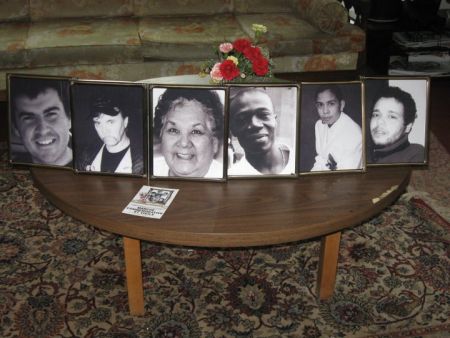On November 29, 2012, Quebec's Public Security Minister, Parti Québécois MNA Stéphane Bergeron, presented Bill 12, the goal of which is to create a truly independent bureau to investigate cases of civilians killed at the hands of police.
Various criticisms are on the rise, lamenting the lack of progressive change from the current police policing model. Below is an interview with Francois Du Canal, a representative from the Collective Opposed to Police Brutality.
1. What is your first impression after reading the newly proposed Bill 12?
In general, I am pretty disappointed with Bill 12, as the currently existing problem in the system of police policing is still not tackled directly, and no significant changes are expected as a result.
2. What are some positive components of the bill? And what are some negative components? How can it be improved?
Well, there are of course many positive components of the bill, - it is noteworthy that the bureau will be able to grant financial aid to the families of the victims to cover legal expenses.
The most detrimental part of the bill is that the community still does not have a part to play in the investigations.
3. Then what is your personal viewpoint on the model of policing the police? What should the Bureau des Enquêtes Indépendantes look like?
People from the community, families directly affected by police abuse and various activist groups should all have an influential role with the bureau. They should also have access to information about the incident and about the progress of the investigations.
One major problem that the community is experiencing is lack of access to investigations. Families have to fight in order to be informed about the investigations and what really happened during these incidents. Investigations and reports are only known to and made by the police. And when charges are not laid, which frequently is the case, no explanations of the decision are provided.
The bureau should exclude police influence completely; meaning it should be composed of civilians exclusively. It only makes sense in theory that the investigation deaths caused by police are left entirely to the community. Right now, Bill 12 cannot claim that the bureau will be independent since its members are elected by the government.
4. What would make the bureau a truly independent entity?
The authority controlling the bureau should not be the Public Security Department; it should be under the Justice Department. This will make sure that the bureau will act upon justice, not under or in collaboration with the police.
5. What kind of relationships do you anticipate retired police officers of Quebec will have with current police officers?
It is normal in any kind of profession for there to be solidarity between workers in the same field. Policing, in theory, has a much stronger solidarity because of the nature of its work environment. As the field is dangerous, police officers tend to help each other and create a deeper bond between them. This creates a solidarity that is omnipresent.
When you are a police officer, you ought to denounce your colleague when any form of abuse of law has been perceived. However, if you actually do denounce your colleague, your other fellow police officers, along with the whole department, will not like you. So if you’re in desperate need for back-up at a crime scene, they probably will be hesitant in helping you out. This is a subculture that is prevalent – a subculture that is similar to the law of silence of the mafia.
Retired police officers, with no exceptions, will have the experience of being engulfed in the same culture. Incorporating retired police officers in the bureau will do nothing to eradicate the subculture.
6. The Montreal police service has recently been criticized because their officers are not qualified to fire their guns. How will Bill 12 address that issue?
This is one of many problems that Bill 12 does not address. The École Nationale de Police du Québec, situated in Nicolet, Quebec, needs to improve their training. Police are trained to shoot at the torso, which is the most critical part of the human body. The teaching to police officers of this kind of lethal technique needs to come to an end.
There are multiple ways to deal with dangerous situations without using such deadly methods. Police officers need to learn ways to cope with tense situations] and to control and disarm people who are in distress. This will be the way to avoid unnecessary deaths.
7. Do you think investigations can be done by civilians? Or is police knowledge and training essential?
This really is not a convincing argument, since police training in investigations can be taught to any civilian.
8. Would you like to add something in particular?
There are ten specific points that we, the COBP, along with many other civil rights groups have demanded of the Quebec government. Many of these points have been ignored in Bill 12, which has been, once again, a disappointment.
The ten points can be found on the website below:



